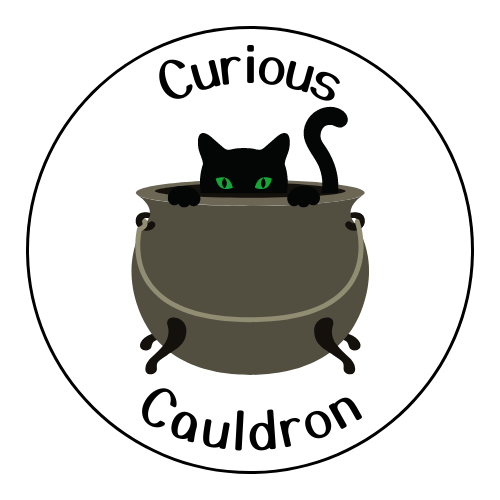
Types of Divination- A Human Fascination with Fortune Telling
Rebecca HaynesShare
Since day dot, individuals have been preoccupied with attempts to influence and predict the future.
We have been obsessed with trying to figure out our place in the universe and where we are headed. There is also the obvious questions, such as "why me", or "how did it happen".
These lingering questions, no doubt, are why cultures all over the world have developed (or some may say they have been gifted with) forms of divination, to help us to understand and control the world around us.
So what is divination?
The word divination derives from Latin divinationem (nominative divinatio), meaning "the power of foreseeing, prediction".
Divination can be defined as “the practice of determining the hidden significance or cause of events, sometimes foretelling the future, by various natural, psychological, and other techniques.”
There have been many forms of divination throughout history, however divination tends to fall into 3 broad categories. These three categories of divination—natural, artificial, and intuitive—have been employed by cultures all around the world, each holding a unique allure.

Natural Divination
Perhaps one of the oldest forms of divination, natural divination draws its power from the observation of natural elements and phenomena.
Examples of natural divination methods include:
- Astrology: Using the positions and movements of celestial bodies to interpret their influence on individuals and events. Astrology seeks to understand how these cosmic energies influence our lives.
- Aeromancy: Interpreting atmospheric conditions, such as cloud formations, to gain insights. By interpreting these natural spectacles, practitioners glean insights into potential outcomes and possibilities.
- Hydromancy: Divination through water, like observing patterns in water or using water reflections.
- Pyromancy: Gaining insights by interpreting flames and smoke from fires.
- Geomancy: Interpreting patterns formed by tossing earth, sand, or stones on the ground.

Artificial Divination:
Artificial Divination, characterized by the use of specific tools and objects, offers a structured framework through which to seek guidance.
Examples of artificial divination methods include:
-
Tarot Reading (Cartomancy): one of the most popular and recognizable forms of artificial divination, Tarot employs a deck of tarot cards, each card representing different aspects of human existence. Through the art of cartomancy, readers gain insights into the complex tapestry of life, gaining insights into past, present and future events.
-
Runes: Runes, originating from ancient Germanic and Norse traditions, are symbols from the runic alphabet. The act of casting runes and interpreting their positions and meanings provides a sense of connection with ancient wisdom, offering guidance and counsel to seekers in their quests for understanding.
-
I Ching: The I Ching, also known as the Book of Changes, serves as a source of profound wisdom in Chinese culture. Using yarrow sticks or coins, practitioners generate hexagrams that convey insights and philosophical teachings, enabling individuals to reflect on their circumstances and make informed decisions.
-
Pendulum Dowsing: Pendulum Dowsing, with its simple yet powerful approach, uses a weighted object on a chain or string to answer yes or no questions. The pendulum's movements are believed to be influenced by energies or subconscious knowledge, providing yes or no responses and empowering seekers with newfound clarity.
-
Ouija Board/ Spirit Board/ Talking Board: This method of divination involves using a board with letters, numbers, and symbols to communicate with spirits or receive answers to questions.

Intuitive Divination:
Whereas Artificial Divination relies on established systems and symbols, Intuitive Divination delves into the realms of extrasensory perception and psychic abilities.
Examples of intuitive divination include:
- Clairvoyance: Practitioners of clairvoyance perceive information beyond ordinary human senses, peering into the depths of the unseen in order to gain insight or make predictions relating to people, events, or objects
- Clairaudience: Clairaudience opens a gateway to receive messages through extrasensory hearing, attuning the practitioner to subtle vibrations and auditory cues to gain insight to that which the ordinary ear cannot perceive.
- Precognition: Having visions or knowledge of future events, precognition grants seers glimpses of the future, warning of potential pitfalls or signaling opportunities that lie ahead. These intuitive insights empower individuals to make conscious choices that can shape their destinies and the destinies of others.
- Oneiromancy: Divination by prophetic dreaming. The diviner interprets dreams to predict the future.
Divination offers seekers a lens through which they can explore the mysteries of existence and gain insights into the hidden currents of life. Whether one chooses to observe the movements of celestial bodies, cast ancient symbols, or rely on intuition, divination remains a profound means of seeking guidance, finding meaning, and embracing the uncertainty that defines our human journey.
At the end of the day, we have really only scratched the surface of the types of divination that are available. If you would like to learn divination there are so many resources available, ranging from teachers to books; blogs; videos, and podcasts. In this day and age, the world is your oyster. There is really not much stopping you. You just need to choose one, explore it and see if you like it!
Let us know do you dabble in the art of divination? Which forms of divination you prefer? Do you practice any other forms of divination that we have not listed? We would love to hear from you!
References: